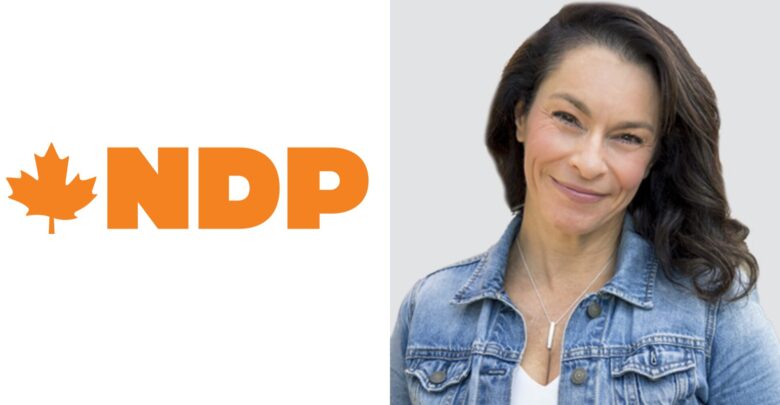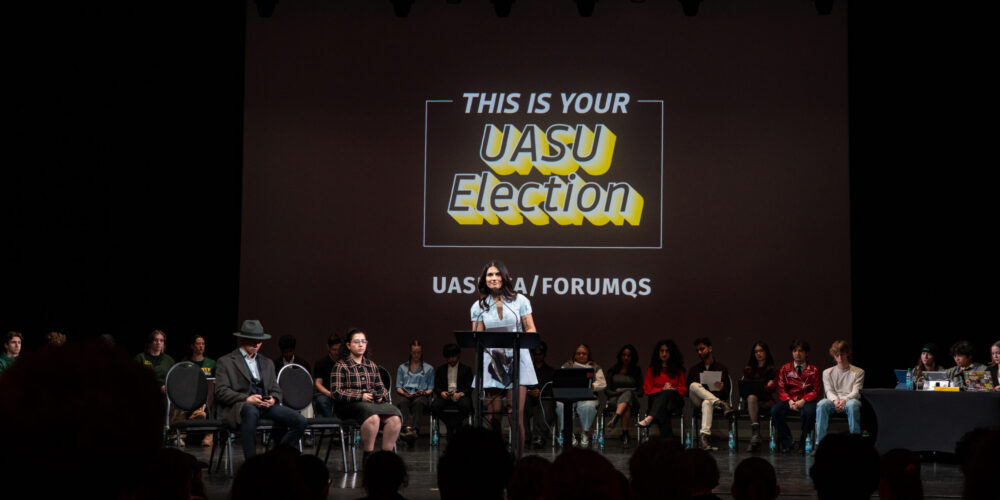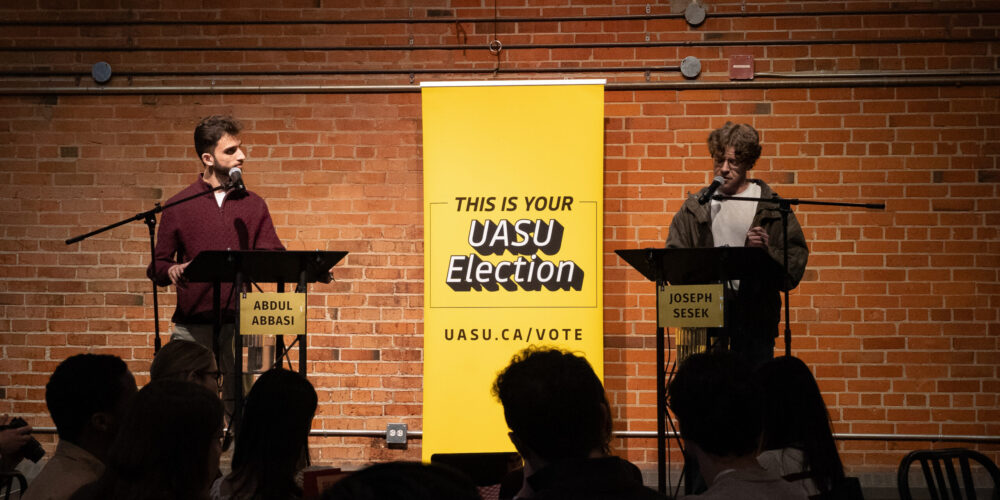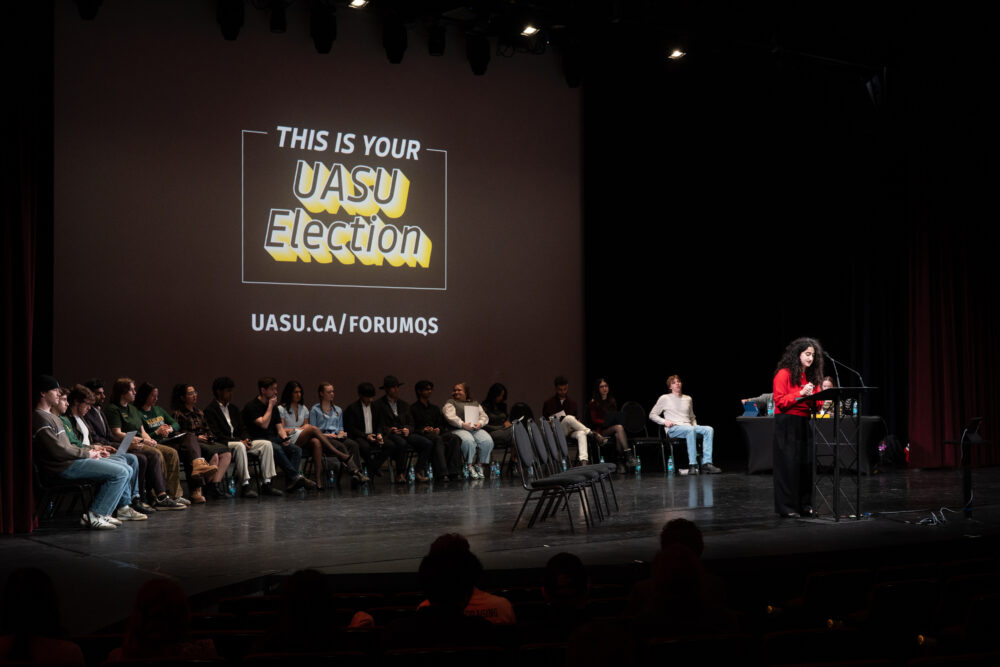Federal election 2025 candidate Q&As: Heather McPherson (NDP)
"I think we need to do much, much more to make tuition affordable for students, to protect workers that work in the university," McPherson says.
 Supplied
SuppliedThis article is part of The Gateway’s Q&A series with the 2025 federal election candidates for the Edmonton Strathcona riding.
Heather McPherson is running as the New Democratic Party’s (NDP) candidate for Edmonton Strathcona. McPherson has held the seat since 2019. She did an interview with The Gateway about student issues in this federal election.
She grew up in Strathcona and went to the University of Alberta for her Master’s in Education. McPherson worked as a teacher before becoming a Member of Parliament (MP). She has two kids, one of which attends the U of A.
The following answers have been edited for length and clarity.
Why are you running in this election and in Edmonton Strathcona specifically?
Heather McPherson: I’m a long-term Edmonton resident. I’ve lived here my whole life. My parents grew up in this riding. I’ve raised my children here in this riding. I think it is quite special, and it means a lot to me. So I would never have run anywhere in politics if it wasn’t in Edmonton Strathcona. In fact, they asked me to run another riding, and I said no, because I think people should live in the riding they want to represent.
And the reason I ran for politics is, actually I got asked a number of times by different people to put my name forward. It wasn’t something I had planned to do. It wasn’t part of my work that I expected to do. I’m a teacher, and I worked in international development. So one day, I was thinking about the fact that I wanted my daughter to know that she belonged at every table, that the voices of women were important to have within politics. I knew that it wasn’t fair for me to complain about how things weren’t progressing the way that I liked in this country without being willing to roll up my sleeves and put my name forward and agree to represent my community.
If elected, you would be responsible for representing many of the students who attend the U of A. What would be your priority in representing those students to your party and the government at large?
McPherson: Having represented the [U of A] now for six years, I can say that I think we need to do much, much more to make tuition affordable for students, to protect workers that work in the university, including sessional professors, who are not being treated very well by this provincial government, to be perfectly honest. One of the steps that I took as a [MP] was that I brought a private member’s bill that would take out the portion of the transfer payment that goes from the federal government to the provincial government that is meant to be used for post-secondary. I would take that out and specifically ensure that those dollars went to making tuition more affordable for students and making sure that the infrastructure and the staffing at the university is supported.
The other thing I would say too is that I look around the world and I look at other countries where post-secondary education is free, particularly for undergraduate students. I think that’s something that we should be considering in this country. I think we need to invest in our students. We need to invest in post-secondary education if we want to have a future economy that looks forward, that if we want to have a community where people want to come here to do their research, want to come here and study.
The final thing I’ll say too is that we need to increase the number and quantity of research grants that are going out. None of that has been updated in a very, very long time. And that’s putting Canadian universities at risk and putting Canadian students at risk as well, because we’re not able to pay students to do their research. We’re not able to pay to have the brightest minds in the world come and work in our institutions.
Affordability is a big issue for students, whether that’s the price of groceries or housing. How would you and your party work to address this issue?
McPherson: Increasingly, we are seeing on the [U of A] campus that affordability is a huge issue for students. It has been for a long time, but it’s getting worse. We know that students are using the Campus Food Bank in numbers that haven’t been seen before. So there’s a few things that we need to look at. We need to look at housing and make sure that students have access to affordable housing, housing that they can stay in. And part of that means making sure that we have a renter bill of rights, making sure that we have rent control. Right now, Alberta is one of the only provinces in the country that does not have rent control in any fashion, and we are seeing landlords hiking the rent by $500, $1,000 a month, and that’s not sustainable for students. So we need to make sure that there is housing available and that they can afford that housing.
We also need to make sure grocery prices are capped and are more affordable. Everyone, whether you’re [a] student or not, has seen the cost of groceries going through the roof. And so we do need to control that. Other countries have implemented programs where they put caps on essential groceries. I think that’s something that we need to be looking at in this country, particularly as those five grocery store chains are making record profits while prices are going through the roof.
The last thing is, in terms of tuition, making sure that tuition is affordable. This year was the first year that students paid more than the government on paying for tuition. And what that does is it limits who can attend university, who can get a university education. We need to make sure that tuition is affordable and that student loans and student grants are [given] to those people who are particularly low income people that need a little bit more support.
How would you and your party approach financial support for students and post-secondary institutions through things like student loans, grants, or research funding?
McPherson: We need more student grants and more student loans. I mean, first of all, we need cheaper tuition. We need tuition that is affordable that Canadian students can actually pay. That means the government has a role to play in that. We need to drastically reduce student tuition, and then we need to start looking at how we ensure that everybody that wants to and is able to attend post-secondary institutions can do that without it being a financial barrier. The benefit of our institutions is that they are supposed to be a place that everyone should be able to go to increase their education, increase their ability to work in a future economy. So I think that’s one of the things that we would focus on.
Now, like I said earlier, we need to make sure that the granting is better. We need to make sure that research funding is better for all institutions. And in Alberta, because our provincial government often gets in fights with the federal government, we need to make sure that the federal dollars that are given to the provinces for post-secondary education are used for post-secondary education. For post-secondary education, particularly on tuition, particularly on ensuring that the graduate students and session workers are protected, taken care of as well.
The U of A has a French speaking campus, which does receive federal funding. What would you and your party do for French speaking post-secondary students?
McPherson: This is an exciting one for me because I’ve done a lot of work supporting Campus Saint-Jean [(CSJ)]. It is a vital piece of our community. Edmonton Strathcona is home to the French Quarter. Of course, it’s important to have diversity and have the support that it is for Franco-Albertans. But I think the key piece for the federal government to recognize is that [CSJ] plays a critical role in us meeting our Charter obligations. So in Canada, it is an obligation that all parents have the ability to teach and have their children educated in whatever language they choose. And if CSJ is not well-funded, Alberta, British Columbia, the Western provinces will not be able to meet that obligation. So we need to invest in CSJ because of the work they do to ensure that we can meet our Charter obligations. And also because we are a bilingual country, and we want to have the ability to draw students to Alberta to learn in French.
Now, I’ve been deeply disappointed with the provincial government’s failure to support CSJ, and in the absence of provincial support, the federal government needs to step up and do even more. I will say that I have spoken many times about the value, the importance, and the need [of CSJ] in Parliament and the House of Commons, and I will continue to do so.
How would you define academic freedom and how would you and your party protect it?
McPherson: Such an important question because, right now, what we’re seeing across the country is this demonization of post-secondary education, demonization of learning and the value of a university education. I look back to when the Conservatives were in power [federally], and the muzzling of scientists that we saw that the researchers weren’t able to share their information. There needs to be a very much hands off approach to how their funding is awarded. The government doesn’t play a role in ensuring, in deciding what people research, and what their findings are, and how they release their funding. That has to be independently provided.
And I also think too we have to increase that funding, because, yes, there is the silencing and the demonization that we often see from the Conservative Party, but there’s also the lack of support for the research that we have seen from governments of all stripes over the past number of years. You know, the rate of inflation, the rate of increased cost, we have not had our funding keep up with that. And so it’s very, very important that we make sure that we are not just allowing research to happen and encouraging research to happen, and that academic freedom is protected, but that we are giving the resources so that research can actually take place.
How would you and your party support Indigenous communities and students?
McPherson: I think this is also a very important question, and it is something that I thought about my whole career. I’m a graduate of the [U of A], I got my master’s and my undergrad from the faculty of education, and I actually wrote a thesis on the incorporation of Indigenous knowledge in the achievement of sustainable development. And so I think there’s so much that we have to learn from Indigenous people who have, of course, been the caretakers of land for millennia. I think it’s really important that we recognize the value of that knowledge and that we incorporate it into the study that we do within the [U of A], that we incorporate it into other faculties.
Obviously I’m very supportive of the Native Studies [(NS)] program. I have taken their public, online course. I have recommended it to many, many people. But I think we need to do more to ensure that more Indigenous people are attending [post-secondary], that the knowledges of Indigenous people are being recognized as important to a wide number of fields, and that the university has the capacity and the ability to sort of incorporate those Indigenous knowledge pieces into the curriculum. Whether it be in the traditional sense as you might think about within Native studies, but in other faculties as well, whether that be medicine or engineering or environment or agriculture, all of those areas. I think we should be looking at ways to incorporate that knowledge into our field of study.




